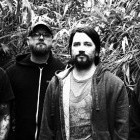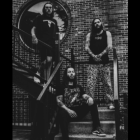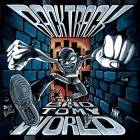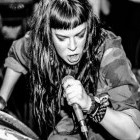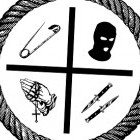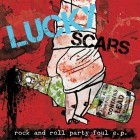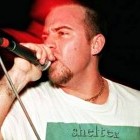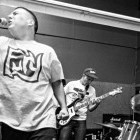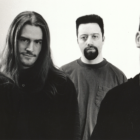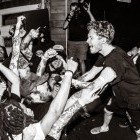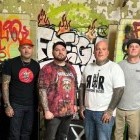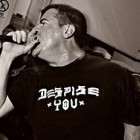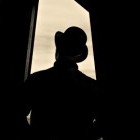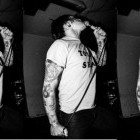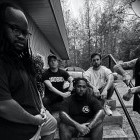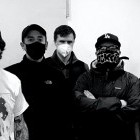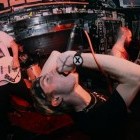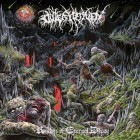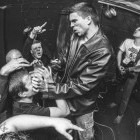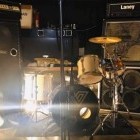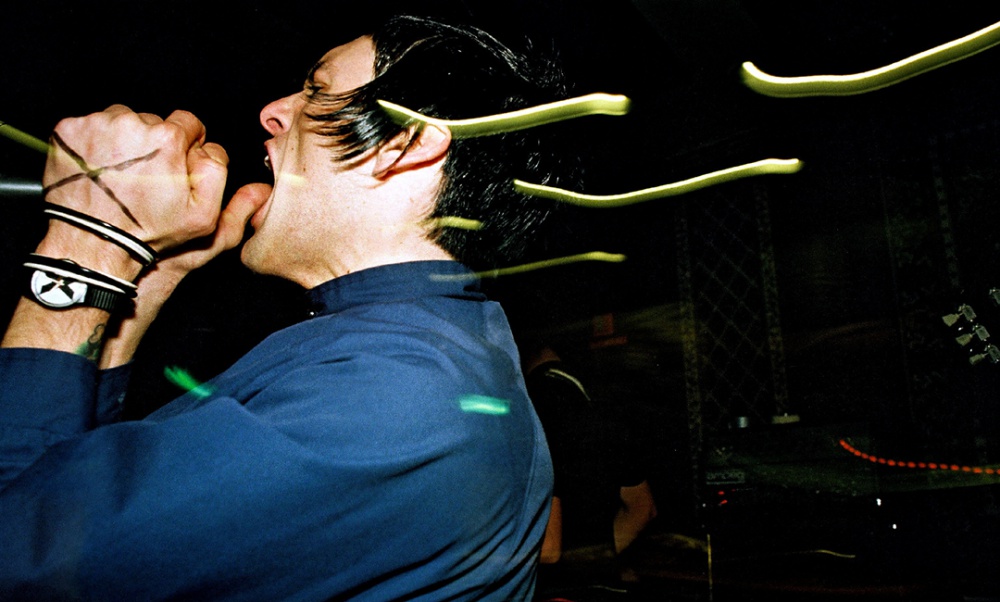
Ryan George is currently one-half of Youth Code, a duo that blends the harsh electronics of classic industrial with the dance rhythms of EBM. In 2016, Youth Code released Commitment to Complications, their sophomore album, and since then have toured with such artists as Chelsea Wolfe, Tribulation, and Code Orange.
But Ryan's origins lay in the Southern California hardcore scene of the late '90s. Most No Echo readers first learned about the musician from his days fronting Carry On, a ripping hardcore outfit that despite only releasing three 7"s and one proper studio album, still managed to help inspire countless musicians. Throw on Carry On's A Life Less Plagued and hear how fresh and immediate it still sounds today, almost two decades later.
This past summer, I met up with Ryan at a restaurant in Echo Park, CA to chat about his musical journey and it's with great pleasure that I share that with you here today.
Tell me a bit about where you grew up and your entry to the hardcore scene.
We lived in a little town called Atascadero, which is a little bit inland from San Luis (Obispo County). There was this band called Corporate America that we loved and I would just take the mic from them at times and just scream along. I wasn't in the band, but it was like we had our own band, you know? All of a sudden we were going with them to all of these house shows and stuff. That's when I realized I wanted to be in my own band.
Well, how did you fall in love with hardcore in the first place?
I had a Reagan Youth cassette that I traded for [Youth of Today's] Can't Close My Eyes with this guy that worked at a gas station and I was so hyped on that! When I told him how much I loved the Youth of Today cassette, he's like, "if you like that so much, this is the best beer-drinking music ever" and handed me a Judge cassette [laughs]. I still talk to that guy. His name is Jim and he turned me onto a lot of great music. He was this older guy you would see at the local shows and people would be scared of him.
How about some local hardcore bands from your old stomping grounds that were around back then?
Later, down the road a bit, there was a band called the Missing 23rd that weren't exactly from there, but they would play a lot of shows around the area. The band was great. They were very important for me. There was also another band that never really took off called Insist from King City, but that's how I met Nathaniel Keefer, who played in drums in Carry On for a while, and later was in the Adored with me. But yeah, Insist were really cool.
How did you discover straight edge and why did you indentify with it?
I remember finding Strife in a 7" bin at a record store and seeing the cover image of Rick Rodney screaming with the "X" on his hand and I fucking lost my mind! I couldn't believe there were still bands that were straight edge. Even before I knew what straight edge was, I wasn't comfortable with drinking. I don't know if I was scared, or just seeing some of the stuff around me, but it wasn't for me. Once I started identifying as straight edge, I would get made fun of and all that. But once I discovered Strife, they were it for me.
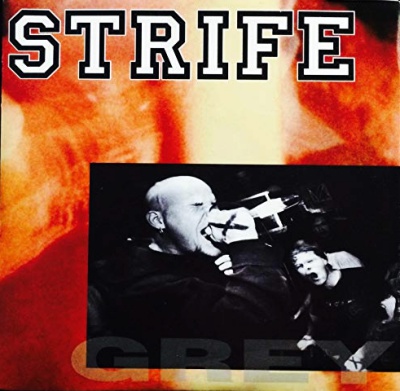
Strife was a game-changer for you.
Yeah, most definitely. It's funny, but I had my own little group of friends and it was like I forced them to be straight edge [laughs]. You need a crew, man! Anyway, we went to LA to see the California Takeover show (Strife, Earth Crisis, Snapcase) at the Whisky. It was such an exciting thing to see, but it was also kinda weird. Hardline was a thing back then and I remember there were people handing out pamphlets with a list of straight edge bands who weren't vegan and are on a death list. I remember seeing people in ski masks moshing in the crowd [laughs]. It was terrifying! Bulletproof vests on the stage [laughs]. But yeah, it got me all stoked [laughs].
What was the first band you played in?
Me and my friends started a band called Persevere. That was us trying to sound like all of the Victory Records bands from that time period. It was all chuggy... you know, that sound. We all wore huge pants, basketball jerseys, stretched ears, all that. We played a show with Ten Yard Fight at the Living Room, in Goleta, and that was a big one. I've had people tell me they have a copy of the Persevere demo but then come through with it. One day I'll get my hands on it [laughs].
What lead to the formation of Carry On?
Well, once the East Coast started having their whole Youth Crew revival thing with bands like Floorpunch, I really got into that because that was the style of hardcore I first got into, not the chuggy stuff I was doing with Persevere. This guy I knew named Mike [Stelle] was starting up a record label [Jitsu] and he was going to put out a Persevere 7" but while that was happening, we changed our sound. We ended up recording a bunch of faster songs and that became the first Carry On 7" [Stabbed in the Face]. So, yeah, we went in as Persevere and changed our name to Carry On by the time we finished. I remember making the cover for that 7" on my parent's computer [laughs].
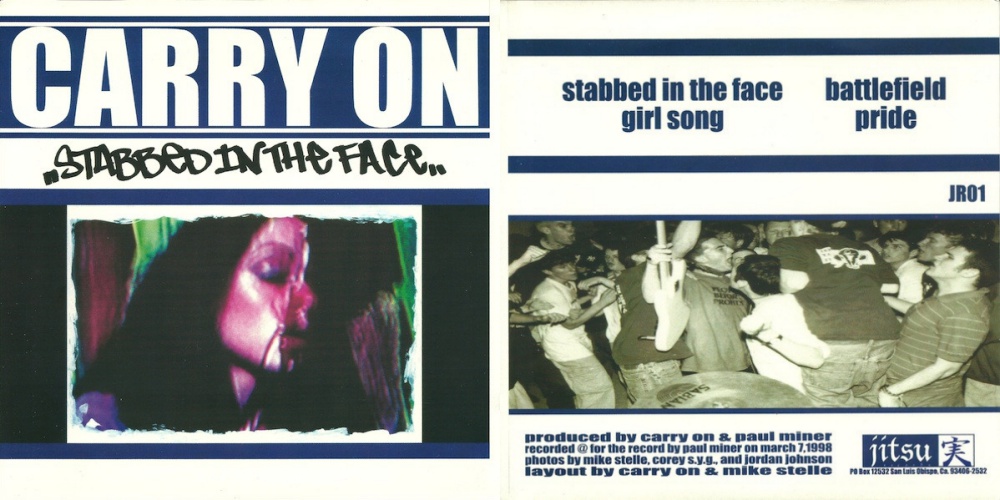
Did you name the band after the Carry On films from England?
No, and I didn't even know about that series when we started that band. Something funny that happened was that I also didn't even think about the whole carry on thing with luggage [laughs]. I was just so focused on the band! I remember the drummer from Eyelid made a one-off shirt with a piece of luggage on it [laughs]. Anyway, we pretty much disowned that 7" because we weren't happy with it, which caused a lot of problems with the dude Mike who put it out.
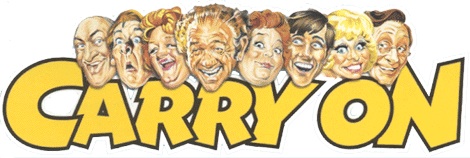
Were people in your local scene bummed out about the new direction of the band and name change?
Oh man, no one cared about us anyway [laughs]. We were just playing to our friends. I remember because we were vegans and stuff, one morning I came out to my car—which had a Meat Is Murder sticker on it—and it was covered in animal organs and blood. It was pretty brutal, man. So, I moved to LA pretty quickly! [Laughs] Yeah, once the Carry On lineup got set with the guys most people know, we were out of that area.
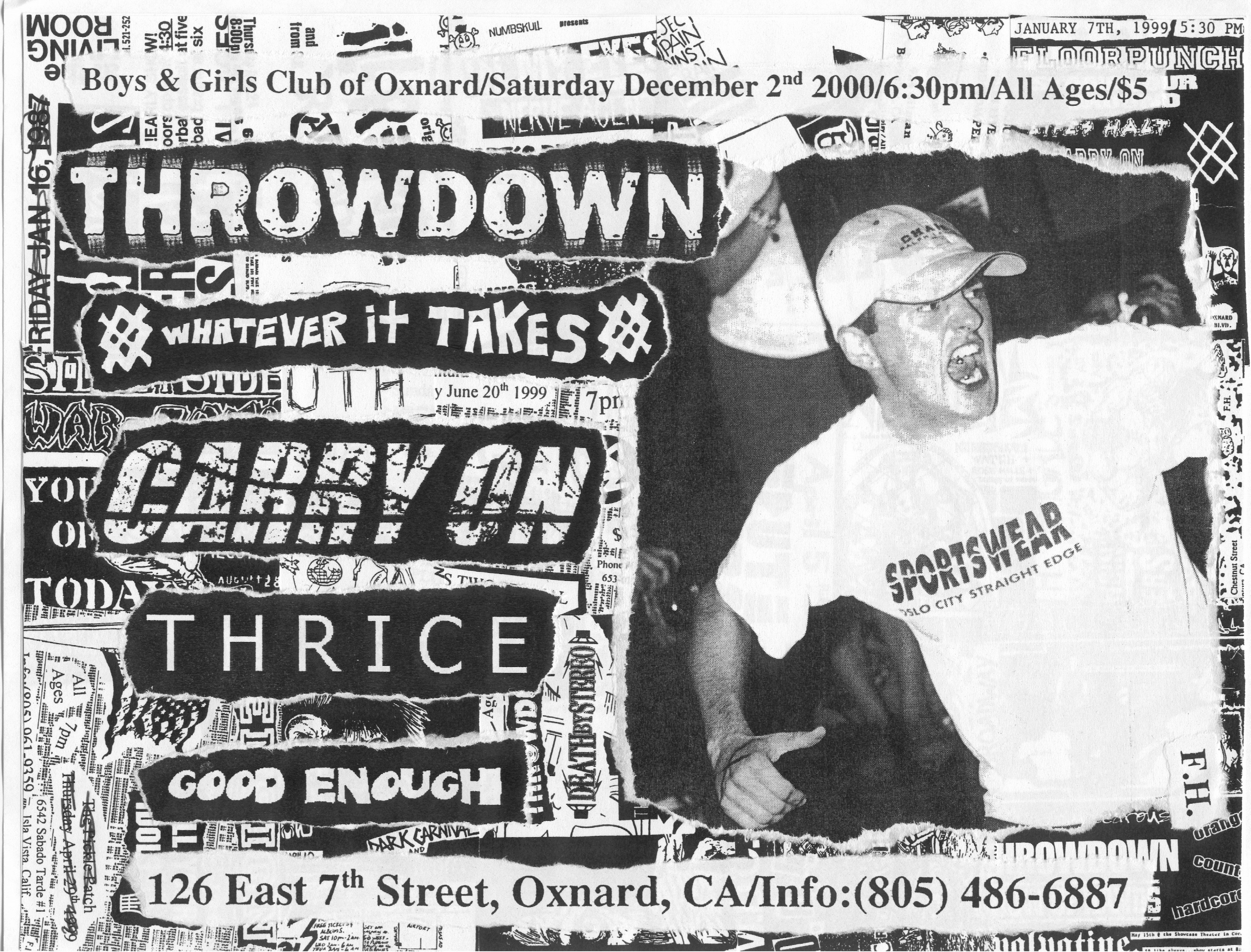
So, Carry On, as a band, all moved together to Los Angeles?
Some of the dudes didn't want to move, but I definitely did. It's hard to remember everything, especially because we had so many member changes even before anyone ever really knew who were yet that it's kind of a long and boring storing. But yeah, we basically ended up in LA and my friend Nat who I was talking about that had played in Insist, well, he became the drummer in Carry On by that point. We had Corey Williams who was from the Thousand Oaks/Canoga Park area on guitar. Todd Jones, who had been in Stand Your Ground, joined on guitar as well. That was the lineup. Our bassist situation was kind of strange. My friend Josh left to join the Army and we had this other guy, Graham [Clise], who is in Annihilation Time now, was in at one point.
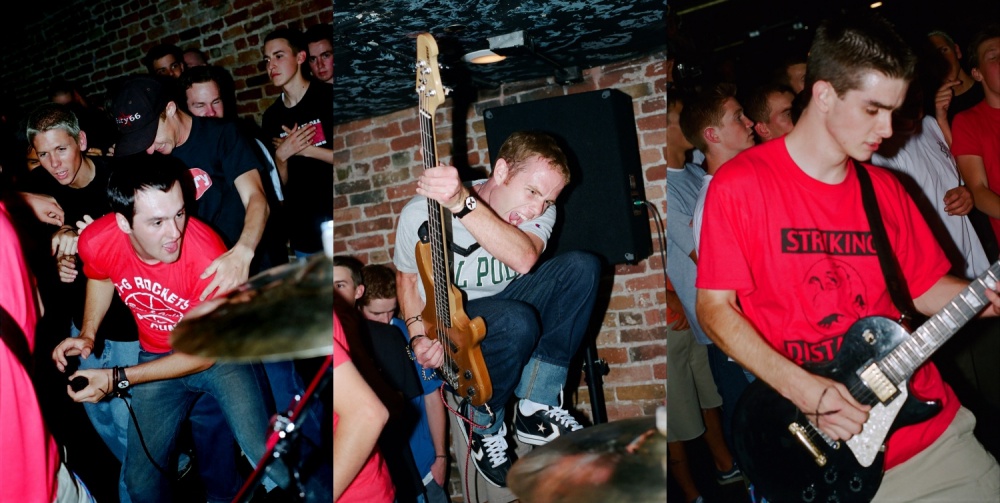
When did Carry On start touring, or at least, playing outside of the Southern California area?
We didn't really start doing that until around the time of the 7" we did on Teamwork Records, which is self-titled but everyone just called "Roll with the Punches." We had also done a 7" [The Line Is Drawn] on Youngblood Records. But that's when we started going out to the East Coast.
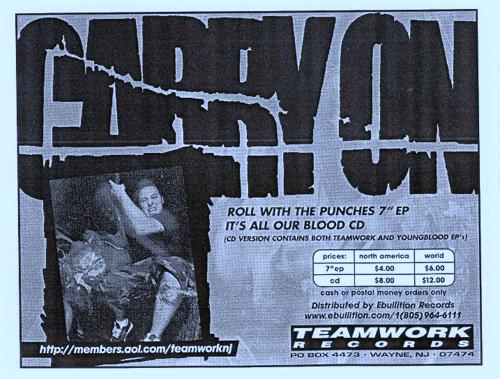
How did Carry On end up signing the deal with Bridge Nine Records?
We hooked up with Bridge Nine because we had done some dates with American Nightmare. The first show was at Jerry's in Bakersfield and [Bridge Nine owner] Chris Wrenn was there and approached us about doing our LP on his label. We were like, "fuck yeah!" [Laughs] When we did those two 7"s, we had reached out our goal. We had done records on both Youngblood and Teamwork, which were the coolest labels to us because they were spearheading the Youth Crew revival that was so big for us. And then when Bridge Nine happened, we couldn't believe it. That was a really good time.
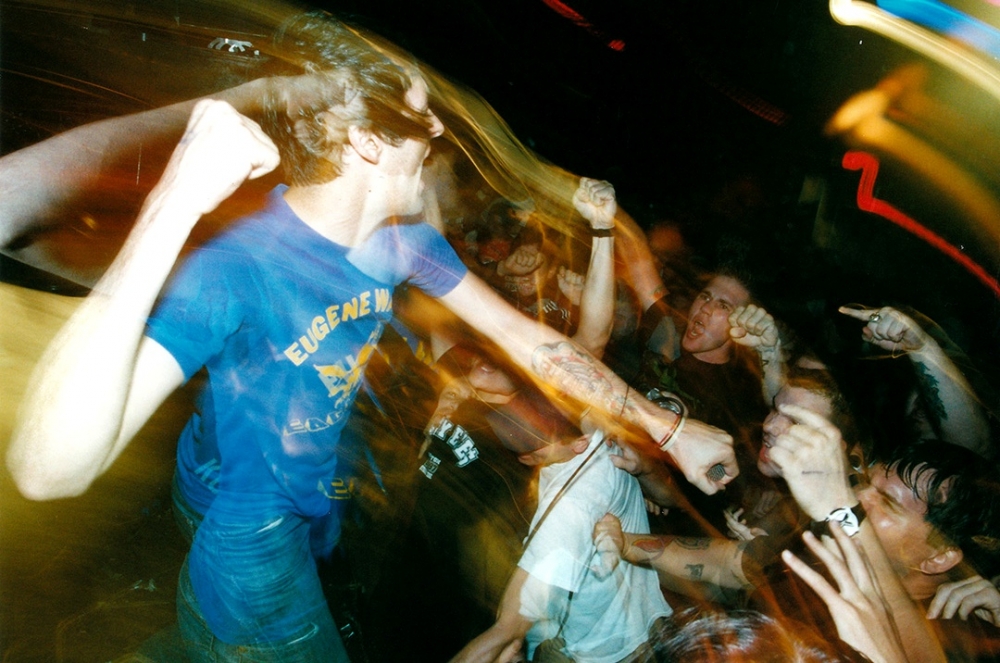
Tell me a bit about the making of Carry On's A Life Less Plagued album.
We recorded it at GodCity with Kurt Ballou and Jake [Bannon] from Converge did the cover art. And no, we didn't give him any direction, we just kind of let him go. I don't remember exactly what happened with that, but I do remember the band not being stoked about the cover. But it was too late. It's guess it's cool because it's different from most of the hardcore records of that time, but we weren't happy when we first saw it. I remember Todd [Jones] being really upset about it. But like I said, it was a long time ago and it's hard to remember every detail.
I'm sure a lot of it becomes a blur...
Yeah, and a lot happened between the point where Bridge Nine signed us and the band ended, which was pretty rapid.
OK, so a lot has been said about the way Carry On ended and you breaking edge and all that stuff. What happened during that period?
Right around the time the album came out, I was super into mod stuff and going out to clubs. I had a scooter and all that. The guys in the band were pretty bummed. I mean, it's all pretty hidden, because I was trying to be lyrical. But for the most part, that whole record was me questioning what the whole straight edge thing was about. I was in my early 20s and seeing all of these things out in the world. I came from a small city, so a lot of these things were new to me. Another thing was meeting a lot of my hardcore heroes and then finding out that they're just douchebags [laughs]. I still loved hardcore, obviously, but that record was about pulling back the curtain on some of that stuff.
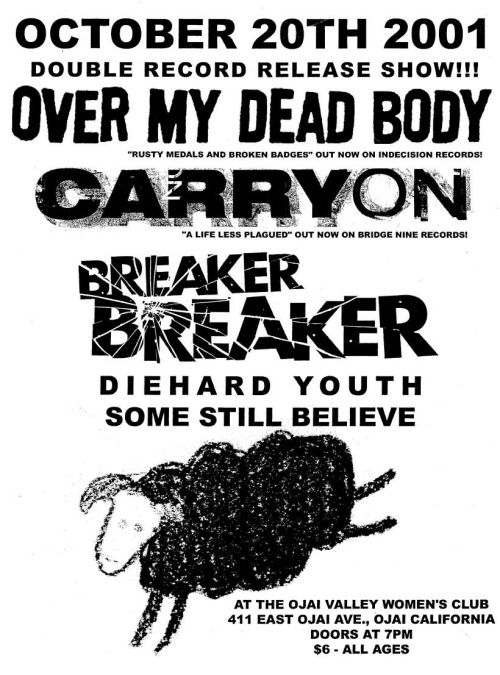
But let me get this straight... when you guys recorded A Life Less Plagued, you were still straight edge?
Yes, when we recorded the album, I was still straight edge. But once it came out and I wasn't straight edge anymore, I still wanted to keep Carry On going. I thought it could be a cool thing. You know, we were just people who were going to grow and change and why should we stop doing the band. But they weren't into it. I understood why they were upset because we were a straight edge band. That was our thing. Some of our best songs were about it. But it was right after the album came out.
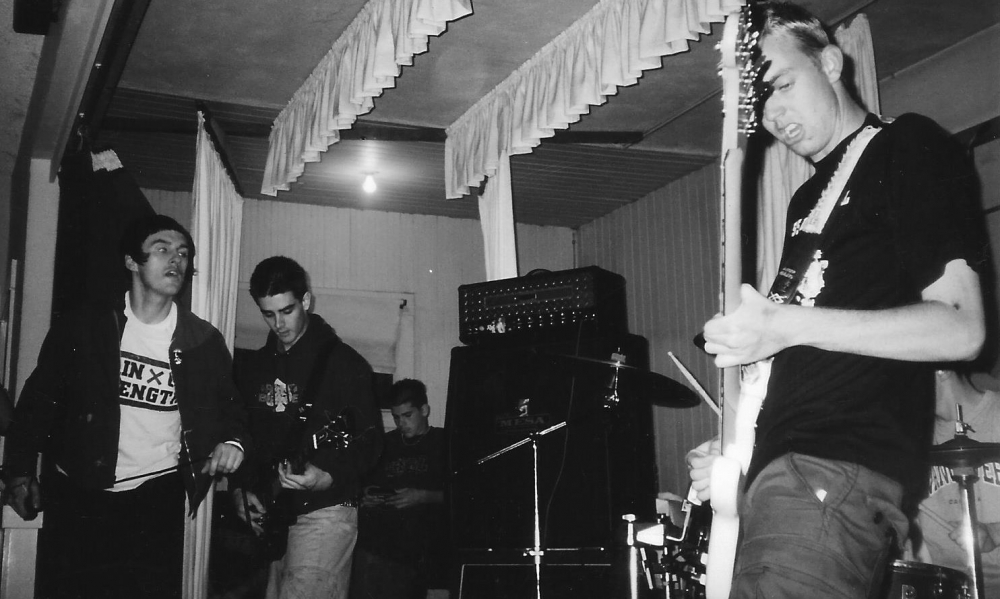
Since the straight edge hardcore scene was your entire world for those years before, I imagine it was a strange thing to go through.
I remember calling Chris Wrenn from the label... it was a big deal to us. But I think everyone talked about it without me there and decided to end it. I also remember Sweet Pete [singer of In My Eyes] calling and saying to me, "You did it and it's over. Don't worry, I know a lot of people who did it and put it behind them." He wanted me to go back to being straight edge.
Did you feel pressure to go back to being straight edge after those things happened?
Yeah, I thought about it for a minute. I started thinking that maybe I had made a mistake. Being older, and thinking about that now, I can't believe it. But I know that depending on who reads this, and if they're straight edge, they'll probably just think I'm a total dickhead, but people change. It is what it is. Once I broke edge, we played some shows, but I wasn't X'ing up or anything. People have accused me of that before. There were so many things said about me and what happened. Like I was doing PCP... crazy shit that just was not true.
Once Carry On broke up, did you want to explore your newer musical influences right away, or did you try and start another hardcore band that maybe didn't pan out?
Yeah, like I said, I would have continued to do Carry On if it were up to me. What happened after was I moved up to San Francisco and was living in the Mission. There was a band up there called Breaker Breaker who had also released something on Bridge Nine. Anyway, I was hanging with them and we were going to start a new hardcore band but it didn't work out for whatever reason.
The Adored was the next band you did after Carry On, which was stylistically a world away from hardcore.
When I was still living in San Francisco, I got a call one day from my friend Nat who had also been in Carry On with me and said he had started a band that was trying to do stuff like the Buzzcocks and if I would consider being their singer. I was like, "Dude, I don't know how to sing!" [Laughs] But I came down to LA and tried out. Even though I couldn't sing, the guys were really cool and I eventually figured it out.
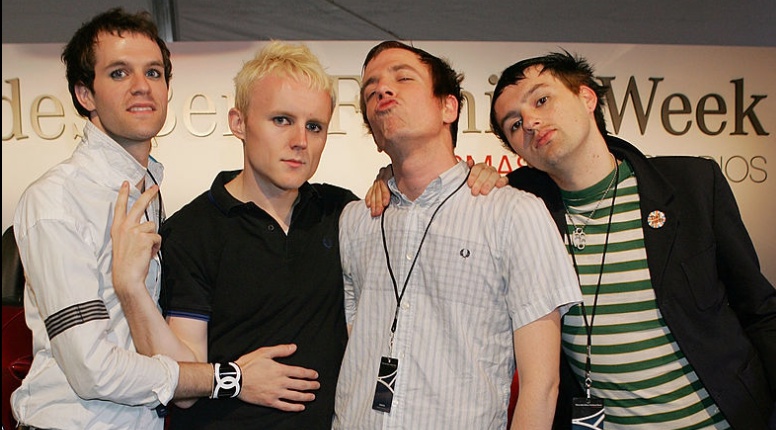
The Adored ended up singing with V2, a division of Virgin Records. It must have been such a trip to go from the indie label thing and hardcore to a major.
Oh, I had punk rock guilt. The others guys definitely didn't. They were all for it [laughs]. I think there was a lot of struggle within the band because of that. I was still very much a hardcore kid. I remember there were times when we would play, and if I drank too much before the gig and I was having fun on stage, I would jump into the crowd. [Laughs] It was so inappropiate for the band I was in, you know what I mean? So, yeah, I caused a lot of problems within that band.
The Adored worked with Pete Shelley and toured with the Buzzcocks and The Damned. In other words, you guys did some cool shit. How do you look back at that band and experience?
We did a lot of fucking rad shit. I can't listen to that band now, and it wasn't exactly what I wanted to do musically. I wanted to go for that Exploding Hearts, power pop kind of sound, but it just didn't happen in that band. But yeah, it was fun while it lasted.
What did you do after the Adored broke up?
Well, I was actually kicked out of that band because I was a mess at the time. While I was getting my shit together, I decided I was going to learn how to play guitar so that I could write my own music. I remember learning all of these chord changes from watching stuff on my computer. Todd Jones also taught me how to do some stuff. I bought a drum machine so I could play along to it with my guitar and that took everything over. All of a sudden, I was like, "This is how you make electronic music!" That was well over 10 years ago now.
Is that when you started doing Youth Code?
Well, before Youth Code even started, I had moved in with Sara [Taylor] and I started a hardcore band with her, me, and Jon Westbrook, the bassist of Carry On. It was gonna be like SSD meets Christian Death. That was the goal. We had drum machine stuff happening and all that. We didn't have a name and we played in our old apartment in Silver Lake. But while we were trying to get that band going, Youth Code played its first show and it was over.
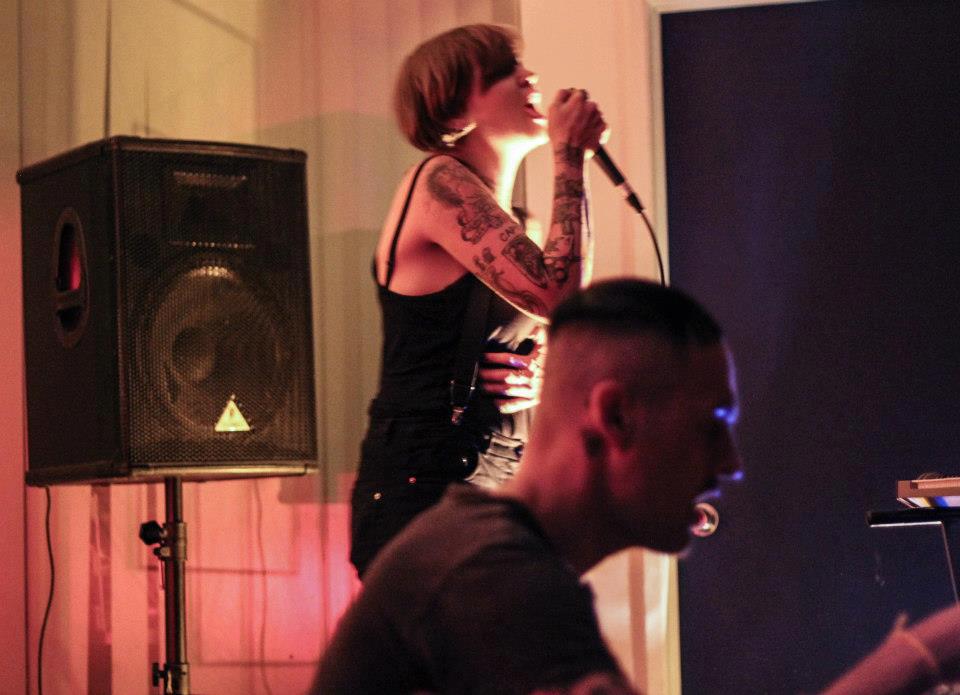
For those readers who might not know, Youth Code is comprised of you and your partner, Sara Taylor. If I remember correctly, that first live show you guys did was kind of a last minute thing?
Yeah, Sara was working at Vacation Vinyl and they did an employee showcase kind of thing. She told them she had a band, even though she didn't [laughs]. So I wrote songs and we figured out a set and played the show. Then we did another show and then got asked to do a show in NYC and it's never stopped since then.
As much as people hate musical genre tags, I use them all the time, especially on No Echo. I consider Youth Code to be an industrial band. Would you agree with that?
Yeah, totally. What happened was when we first started dating, we would make each other these mixes and she was putting industrial stuff on it. I was kinda tripping out because I didn't know anyone that was into that kind of shit. In the town I grew up in, I think a lot of the punk kids had a lot of the same mixtapes. We would record them for each other and they would get passed around.
The first time I heard Ministry and Front Line Assembly was on one of those mixtapes when I was a kid. It would be Fugazi one song. The next would be RKL and then Sepultura. It didn't matter what style it was.
Here is a video short I produced on Youth Code a few years back when I worked at Fuse:
By the way, where does the name Youth Code come from?
I don't think I've ever said this before, but we just got the name from some L'Oreal product we saw at a grocery store. That was when we were still doing this for Sara's work party and we didn't think it would be a real band or anything. I liked the idea of the word "youth" because of Youth of Today, and "code" because it was like Cabaret Voltaire... it was perfect.

What's next for Youth Code?
We're out of contract with Dais Records and have been talking to a lot of labels about working together. Once we finish recording the new album, we'll see what happens with that, but we have options now. I've been doing a lot of remix work lately, which has been fun. I have so much creative freedom with Youth Code and I love that. It's like everything I love about music: the aggression, the heaviness... all that.
***
Follow Youth Code on Facebook, Twitter, and Instagram.
Tagged: carry on, youth code

